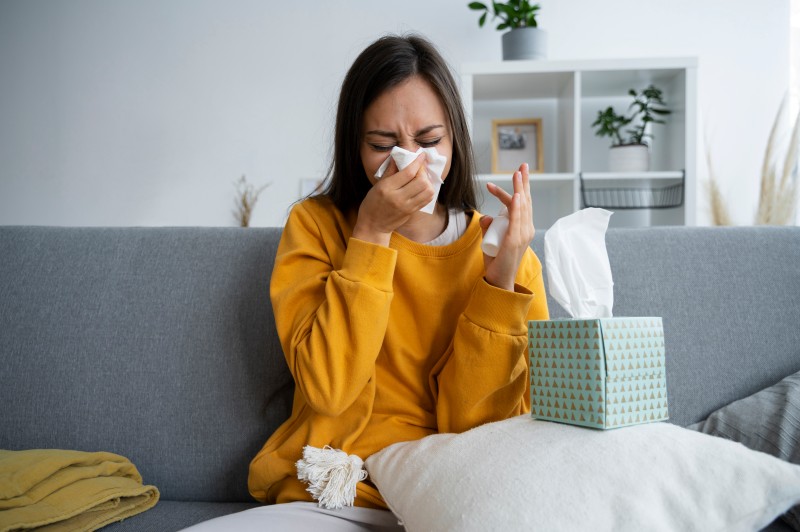Allergies affect millions of people worldwide, making everyday life uncomfortable and at times even dangerous. From sneezing and itchy eyes to severe breathing issues, allergy symptoms can range from mild to life-threatening. Understanding how to manage both seasonal allergies and year-round triggers is key to living a healthier, more comfortable life. With the right allergy medicine, preventive care, and proper allergy testing, you can identify what’s causing your reactions and create an effective management plan.

What Causes Allergies?
An allergy occurs when your immune system overreacts to substances that are typically harmless, such as pollen, pet dander, dust mites, or certain foods. Your body mistakenly identifies these substances, called allergens, as threats and produces histamines in response. This immune response is what leads to common allergy symptoms such as sneezing, runny nose, watery eyes, skin rashes, or respiratory issues.
While some people only struggle with seasonal allergies during spring or fall due to pollen, others experience year-round reactions triggered by indoor allergens like mold, dust, or pets. Understanding the type of allergy you have is the first step in creating an effective treatment plan.
Recognizing Allergy Symptoms
Identifying allergy symptoms early can help you find relief faster. Some of the most common signs include:
- Sneezing and runny or stuffy nose
- Itchy, watery, or red eyes
- Coughing or wheezing
- Skin reactions such as hives, rashes, or eczema
- Fatigue due to poor sleep from nasal congestion
- Shortness of breath or chest tightness in severe cases
Since these symptoms can overlap with colds, flu, or sinus infections, it’s important to undergo an allergy test if you’re unsure of the cause.
Seasonal vs. Year-Round Allergies
- Seasonal Allergies: Typically occur during certain times of the year, often triggered by pollen from trees, grasses, or weeds. Commonly referred to as hay fever, these symptoms are most intense during spring and fall.
- Year-Round Allergies: Triggered by indoor allergens such as dust mites, pet dander, mold, or cockroaches. These allergies persist throughout the year and can significantly affect daily life.
Both types can be managed with lifestyle changes, medication, and medical guidance.
Allergy Testing: A Key Step to Relief
One of the most effective ways to identify your triggers is through allergy testing. There are different types of tests, such as skin prick tests and blood tests, that help pinpoint the exact allergens affecting you. An allergy test not only confirms the cause but also helps doctors design a personalized treatment plan.
Managing Allergies Effectively
Living with allergies doesn’t mean you have to suffer endlessly. With the right strategies, you can minimize symptoms and improve your quality of life. Here are some proven ways to manage allergies:
1. Allergy Medicine
Over-the-counter and prescription allergy medicine can provide quick relief. Antihistamines, decongestants, and nasal sprays are common options. For chronic or severe cases, immunotherapy (allergy shots) may be recommended. Always consult with your doctor before starting new medications.
2. Lifestyle Adjustments
- Keep windows closed during high pollen seasons.
- Use air purifiers to reduce indoor allergens.
- Wash bedding frequently in hot water to kill dust mites.
- Shower and change clothes after spending time outdoors.
3. Avoid Triggers
If you know what you’re allergic to, take steps to reduce exposure. For example, if you’re allergic to pets, consider limiting bedroom access for your pets or using HEPA filters.
4. Regular Allergy Testing
Since allergies can change over time, periodic allergy testing is recommended. This helps track your triggers and ensures your treatment plan stays effective.
5. Seek Professional Help
If over-the-counter options aren’t enough, consult an allergist. They can recommend stronger allergy medicine or long-term treatments like allergy shots or sublingual tablets.
Long-Term Outlook
While allergies cannot always be cured, effective management makes a huge difference. By combining preventive measures, proper allergy medicine, and regular allergy tests, individuals can keep their allergy symptoms under control and enjoy a healthier, more comfortable lifestyle.
Frequently Asked Questions (FAQs)
1. What is the most common cause of seasonal allergies?
The most common cause of seasonal allergies is pollen from trees, grasses, and weeds. These allergens peak during spring and fall.
2. Can allergy medicine cure allergies permanently?
No, allergy medicine cannot cure allergies, but it helps relieve allergy symptoms. Immunotherapy (allergy shots) is the only treatment that can potentially provide long-term relief by desensitizing your immune system.
3. How do I know if I need an allergy test?
If you experience recurring sneezing, itchy eyes, runny nose, or skin rashes that don’t improve with regular treatments, an allergy test can help identify your triggers.
4. Are seasonal allergies the same as a cold?
No. While both may cause congestion and runny nose, seasonal allergies usually come with itchy eyes, no fever, and symptoms that last for weeks or months, unlike colds.
5. How often should I get allergy testing?
Doctors recommend allergy testing every few years or if your symptoms change significantly. New allergies can develop over time, so re-testing ensures accurate treatment.
Struggling with allergy symptoms? Get expert solutions today—visit our website https://sccwaco.com/services-and-specialities/allergy/ and call us at (254) 308-7868 for relief!
